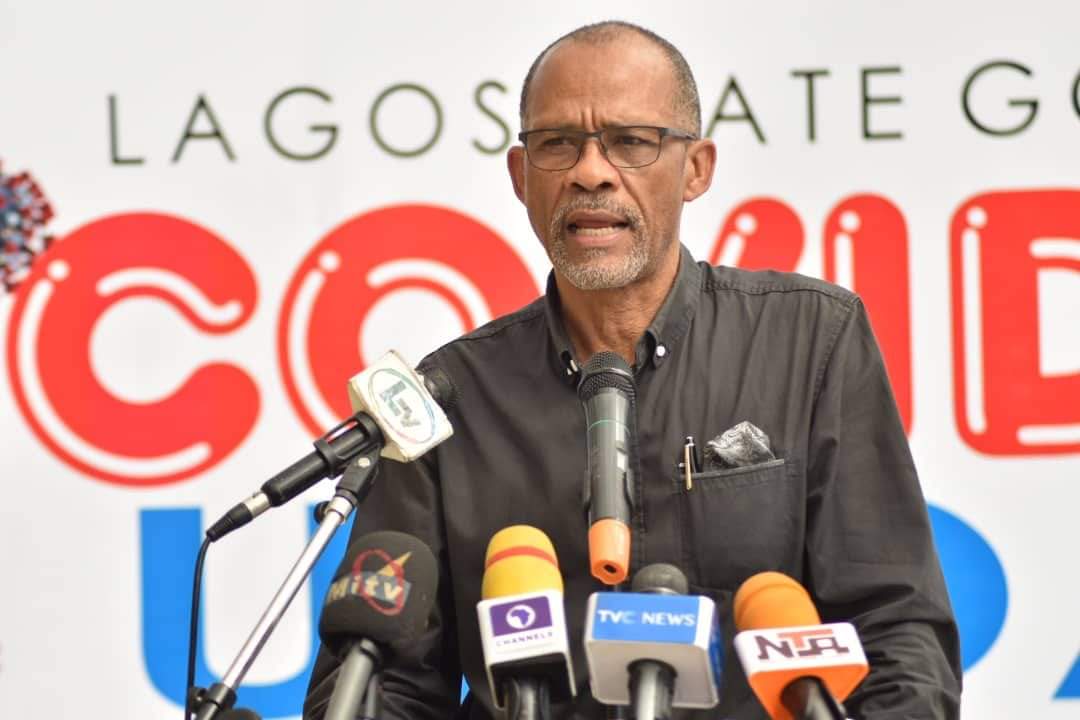95% of fevers in Lagos not malaria – Commissioner

A groundbreaking discovery in Lagos State has revealed that 95 out of every 100 fever cases are not caused by malaria, according to the State Commissioner for Health, Prof. Akin Abayomi. This finding is at the core of a new strategic shift in fever diagnosis and treatment, aimed at curbing misdiagnosis and tackling the growing threat of antimicrobial resistance (AMR).
Speaking at the three-day kickoff of the “Pathway to Pre-Elimination and Digitization Project,” Abayomi emphasized the need to move beyond the automatic assumption that all fevers are malaria-related. The event focused on comparing Malaria Rapid Diagnostic Tests (RDTs) with microscopy and evaluating the capacity of Patent Proprietary Medicine Vendors (PPMVs) to manage malaria and fever cases.
“We must eliminate malaria from this region. Healthcare providers must understand that, on average, 95% of fever cases are not malaria-related,” he stated.
For years, the default response to fever in Lagos and across Nigeria has been the routine administration of anti-malarial drugs without proper diagnostic confirmation—a practice Abayomi warned is both dangerous and wasteful. The overuse of anti-malarials and antibiotics, he noted, is contributing to AMR, where infections become increasingly difficult or impossible to treat.
“We’re facing a serious challenge with microbial resistance. Irresponsible dispensing of antibiotics and anti-microbials is making the situation worse,” he warned. He cited data showing that 60% of human infections originate from animals, highlighting the interconnected nature of AMR.
Under the state’s new “Test, Treat, and Track” strategy, any patient presenting with a fever will first be screened for malaria using RDTs. If the result is negative—as it is expected to be in most cases—healthcare providers must carry out further evaluations to determine the actual cause, which could be pneumonia, gastroenteritis, or other infections.
The commissioner also announced stricter regulations on pharmacies, emphasizing that it is illegal to purchase antibiotics or antimalarial drugs without a valid prescription. He urged the Pharmacy Council of Nigeria to enforce this law to help prevent Lagos from becoming the epicenter of antimicrobial resistance.
This initiative is being implemented with the support of a World Bank grant and in partnership with Prof. Wellington Oyibo’s research team. The approach is rooted in evidence-based medicine and aims to address Nigeria’s high malaria burden through more accurate diagnosis and appropriate treatment.
Prof. Oyibo, Director of the Centre for Transdisciplinary Research for Malaria and Neglected Tropical Diseases and coordinator of the study, warned of the dangers of misdiagnosis. “Pneumonia, for instance, can present symptoms similar to malaria. If a child with pneumonia is given anti-malarial drugs without testing, that child could die from untreated pneumonia,” he explained.
ATTENTION: Follow 9jaReporters on Instagram for a chance to win ₦100,000 in our Top Fans Challenge!
JOIN NOW to participate and stand a chance to win exclusive prize ons, free airtime, and exciting gifts!
FOLLOW US TODAY! DON’T MISS OUT!
Oyibo also highlighted the importance of RDTs over traditional microscopy, especially in low-resource settings, due to their accuracy and practicality. He noted that Lagos is the only Nigerian state currently qualifying as being in the malaria pre-elimination phase based on epidemiological data.
Despite this progress, fever cases in Lagos are still frequently misdiagnosed as malaria, contributing to inflated malaria statistics. The new approach aims to change that, ushering in a healthcare era rooted in accuracy, scientific rigor, and a commitment to reducing drug resistance and improving public health outcomes.




